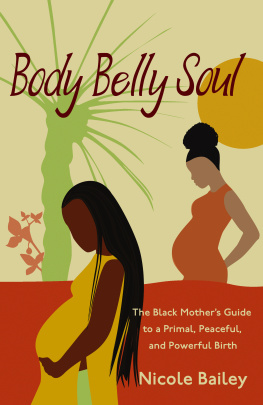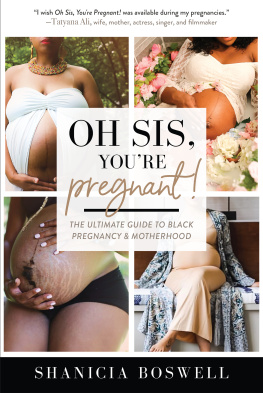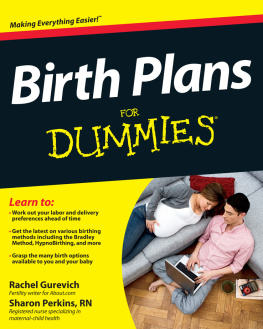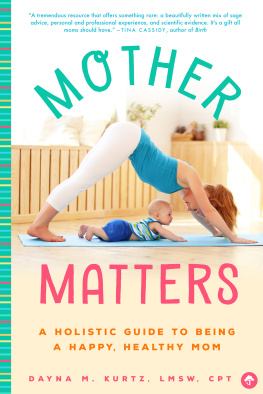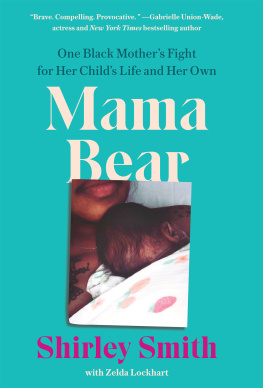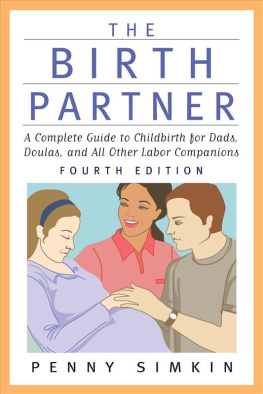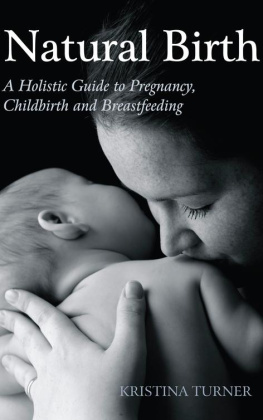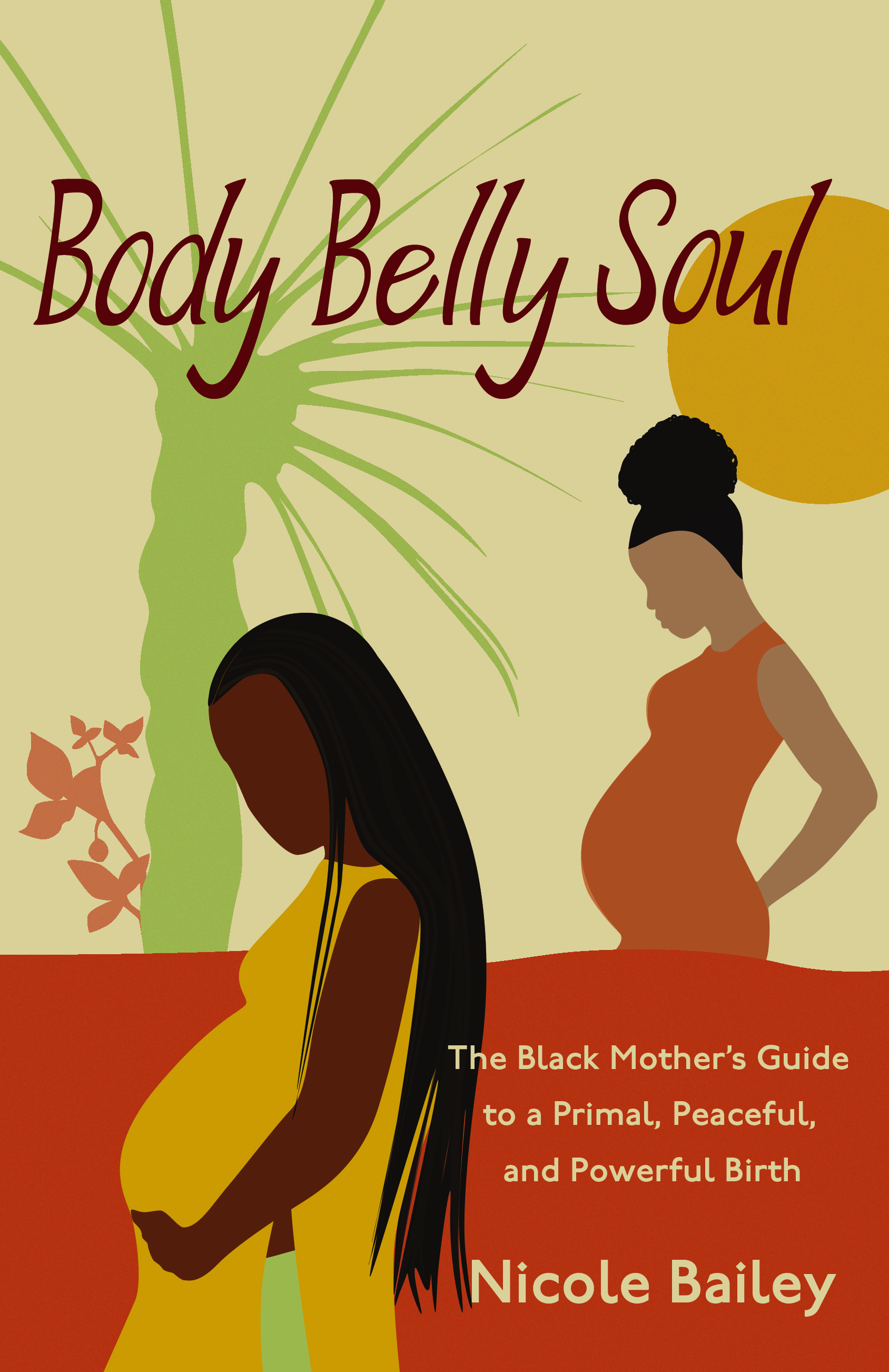Body Belly Soul
The Black Mothers Guide to a Primal, Peaceful, and Powerful Birth
Nicole Bailey
Copyright 2021 by Nicole Bailey. All rights reserved. No portion of this book may be reproduced, stored in a retrieval system, or transmitted in any form or by any meanselectronic, mechanical, photocopy, recording, scanning, or otherexcept for brief quotations in critical reviews or articles, without the prior written permission of the publisher.
ISBN - 978-1-955090-16-2
ISBN for Ebook - 978-1-955090-17-9
Library of Congress Number: 2021918004
Cover design done by Samantha Jordan
https://www.sammijdesigns.com/
Copyediting by N. Amma Twum-Baah
https://www.ammaedits.com
Disclaimer
This book is intended to provide helpful and useful information. It is not intended to diagnose, treat, cure, or prevent any health problems or conditions, nor is it intended to replace the advice of a physician. No action should be taken solely on the contents of this book. Always consult your physician or a qualified health care provider on any matters regarding your health, and before adopting any suggestions in this book or drawing inferences from it.
The author and foreword author expressly disclaims any responsibility for any liability, loss, or risk, personal or otherwise, which is incurred consequently, directly, or indirectly, from the use and application of any of the contents of this book.
Dedication
For Alexandria, you are my biggest inspiration to equip and serve Black mothers and daughters who will follow in my footsteps. You give me passion and purpose.
For Johnny, my love, may we always fight inequality together and serve as an example in our community to promote change.
Foreword
As a nurse with nearly 15 years of maternity care experience in hospital and community settings, I have witnessed the lack of Black voices being accepted on the topic discussed in Body, Belly Soul . Hospitals must meet goals, have quotas, and must make space for additional patients daily. Unfortunately, this pace in patient care can make hospital births seem like a factory, leading to unnecessary interventions that cause moms and babies undue stress and trauma. While caring for and speaking with moms and families postpartum, my experience is that they are often glad the birth experience is over, but do not feel like they had much input in how the process went. Body, Belly, Soul is here to change that narrative.
I met the author, Nicole Bailey, at a baby shower. As a healthcare professional focused on respectful maternal care, and Nicole having similar interests, we ended up chatting for hours. We bonded while discussing our potential journeys through motherhood and noticed that we had similar birth story expectations. We were both mothers passionate about reframing the birth experience for Black women, and we were both using our first-time pregnancies as an opportunity to educate ourselves by making conscious decisions on how we wanted our birthing experiences to go. Knowing that the birth experience can change in an instant, we were aware that we would have to accept some changes, while still holding true to our values. As a result of this preparation, we can now share positive stories about the joys of childbirth and the steps it takes to get there as an expectant mother.
A common thread Nicole and I also shared was having loving and supportive husbands and caring and courageous mothers throughout the process. If either of those is unavailable, we encourage women to create a strong support system of friends and/or relatives, who believe and feel the same way as she does about pregnancy and childbirth.
Seeing Nicole as a mother, so enthusiastic about the voices of minority mothers, reminds me that my role as a nurse is to advocate. When caring for my patients, especially those Black and Brown patients, I must listen to and respect their wishes, support them, and clarify their understanding of their current situations. Every birth story is different, but each deserves the same respect. As healthcare professionals, we attend to births every day, but to every mom and every family it is their unique individual experience and, treating it as just a number will not work.
I am writing this foreword during my second pregnancy, and Body, Belly, Soul reminds me that I have control over my birth experience and, as many chapters and sections of the book detail:
- I get to choose my provider and the location of delivery.
- I have a support system that I have chosen to be involved in.
- I control my thoughts with what I welcome into my ears, my mind, and my heart.
- I control the energy that I transfer to my baby.
- I control the ways I prepare my body for labor.
- I control the space where I will birth my baby.
With control, there comes the responsibility for me to make informed decisions. I must understand the entire process of whats happening to my body, belly, and my soul. I must begin by informing myself about the overall situation. This book will provide you with valuable questions to ask, decisions to ponder, and steps to take as you prepare for your birth experience. I can attest to the fact that Body, Belly, Soul gives you the necessary information, so you can stay in control of your birth story.
Dr. Lorraine Wilson Batts, DNP, RN
Preface
I imagine you picked up this book because current Black maternal statistics alarm you. Maybe you want an unmedicated birth but are unsure of how to start. Or youre the first one among your friends to become a mother and you have no idea whats next. If you are looking for positive narratives surrounding birth, or perhaps, youre a birth worker looking for ways to protect Black mothers, for whatever reason, whoever you are, I affirm you!
First, I want to commend you for taking the first step towards having a more enlightened birth experience. Whether you are expecting your first baby, your third baby, or simply guiding someone else through their pregnancy, taking interest in the Black birthing experience is the first step to reducing the current maternity statistics that are haunting the Black community.
We must ask ourselves, why are black mothers dying at a rate 3-4 times that of white women in the United States? That is 243% more likely to die from pregnancy and child-related complications. Lack of empathy from healthcare providers, the failure of health professionals to listen to the concerns of Black mothers, a perceived lesser value than our counterparts of other races, systemic racism in our healthcare systems, lack of providers who look like us, a lack of respect when it comes to Black womens expressions of pain, the habitual use of interventions, birthing by directions rather than instinct, overuse of our medical system, and so on. Sadly, the list goes on and on and one can say that this is history repeating itself or that nothing has changed at all.
So, how can we protect ourselves in maternity rooms when faced with a system that is so quick to reduce us to a statistic or an experiment? The answer is through preparation, advocating for ourselves, and raising our consciousness. Because the truth is that Black women are more likely to die during childbirth from interventions, and a robust preventative care plan will reduce the number of Black women finding themselves in need of higher levels of care resulting from complications. Only a small percentage of pregnancies initially fall into the category of complicated and require emergency services.
Birth requires that we prepare ourselves by focusing entirely on our mental, physical, and spiritual conditions. That we advocate, with the knowledge we have acquired through preparation, for the care that we deserve. This is done by becoming more conscious about the entire process and history of pregnancy, birthing, and postpartum, by taking a deep look into our ancestors rituals and traditions. We will explore how to use formerly trusted ways of birthing in todays modern birth spaces, and how to arm ourselves with knowledge of all the stages of childbearing.

